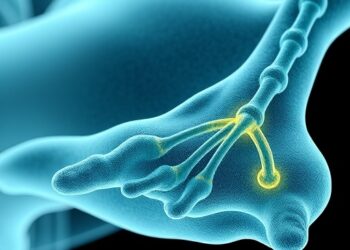The Howard Hughes Medical Institute announced on July 23, 2024 that 26 of the nation’s leading scientists have been named HHMI Investigators.
The Howard Hughes Medical Institute announced on July 23, 2024 that 26 of the nation’s leading scientists have been named HHMI Investigators.
Paving the way for new scientific and biomedical discoveries in fields ranging from neuroscience to immunology to structural biology, these scientists come from 19 US institutions and join HHMI’s current Investigator community, comprising more than 250 scientists.
HHMI will invest more than $300 million in this newest cohort over the next seven years, enabling each Investigator to push the boundaries of science.
“HHMI is committed to supporting visionary scientists who are pursuing discoveries that will change our world for the better,” says HHMI Vice President and Chief Scientific Officer Leslie Vosshall.
Guided by the principle of investing in “people, not projects,” HHMI provides Investigators with the time and resources they need to go where their science leads, Vosshall says. Each new HHMI Investigator will receive roughly $11 million in support over a seven-year term, which is renewable indefinitely pending a successful scientific review. This support includes their full salary and benefits, a generous research budget, scientific equipment, and additional resources.
HHMI selects Investigators through a national open competition, which includes evaluation by an advisory panel of leading scientists as well as HHMI scientific leadership. Nearly 1,000 eligible scientists submitted applications during the competition. This year’s evaluation included a focus on research culture and mentoring, and highlighted individuals’ efforts to make science open and accessible to all.
“When scientists create environments in which others can thrive, we all benefit,” says HHMI President Erin O’Shea. “These newest HHMI Investigators are extraordinary, not only because of their outstanding research endeavors but also because they mentor and empower the next generation of scientists to work alongside them at the cutting edge.”
To date, 34 current or former HHMI scientists have won the Nobel Prize – most recently, Carolyn Bertozzi in 2022 for the development of click chemistry and bioorthogonal chemistry. HHMI Investigators have long made significant contributions across many research areas, including biochemistry, molecular biology, plant sciences, cancer biology, cell biology and many other scientific disciplines.
Below are the 26 new HHMI Investigators:
• Jonathan Abraham, MD, PhD (Harvard University)
• Dmitriy Aronov, PhD (Columbia University)
• Janelle Ayres, PhD (Salk Institute for Biological Studies)
• Siobhán M. Brady, PhD (University of California, Davis)
• Edward Chouchani, PhD (Dana-Farber Cancer Institute)
• James J. Collins III, PhD (The University of Texas Southwestern Medical Center)
• José R. Dinneny, PhD (Stanford University)
• Steve Flavell, PhD (Massachusetts Institute of Technology)
• Lillian Fritz-Laylin, PhD (University of Massachusetts Amherst)
• Mary Gehring, PhD (Whitehead Institute for Biomedical Research)
• Lisa Giocomo, PhD (Stanford University)
• Viviana Gradinaru, PhD (California Institute of Technology)
• Valentina Greco, PhD (Yale University)
• André Hoelz, PhD (California Institute of Technology)
• Mehrdad Jazayeri, PhD (Massachusetts Institute of Technology)
• Gene-Wei Li, PhD (Massachusetts Institute of Technology)
• Steven McCarroll, PhD (Harvard University)
• Dave Pagliarini, PhD (Washington University in St. Louis)
• Carrie Partch, PhD (University of California, Santa Cruz)
• Vijay G. Sankaran, MD, PhD (Boston Children’s Hospital)
• Sichen (Susan) Shao, PhD (Harvard University)
• Samuel H. Sternberg, PhD (Columbia University)
• Gabriel D. Victora, PhD (The Rockefeller University)
• Ilana B. Witten, PhD (Princeton University)
• Michael Yartsev, PhD (University of California, Berkeley)
• Li Ye, PhD (Scripps Research Institute)
More information about HHMI’s Investigator Program can be found online at hhmi.org.
###
HHMI is the largest private biomedical research institution in the nation. Our scientists make discoveries that advance human health and our fundamental understanding of biology. We also invest in transforming science education into a creative, inclusive endeavor that reflects the excitement of research. HHMI’s headquarters are located in Chevy Chase, Maryland, just outside Washington, DC.




